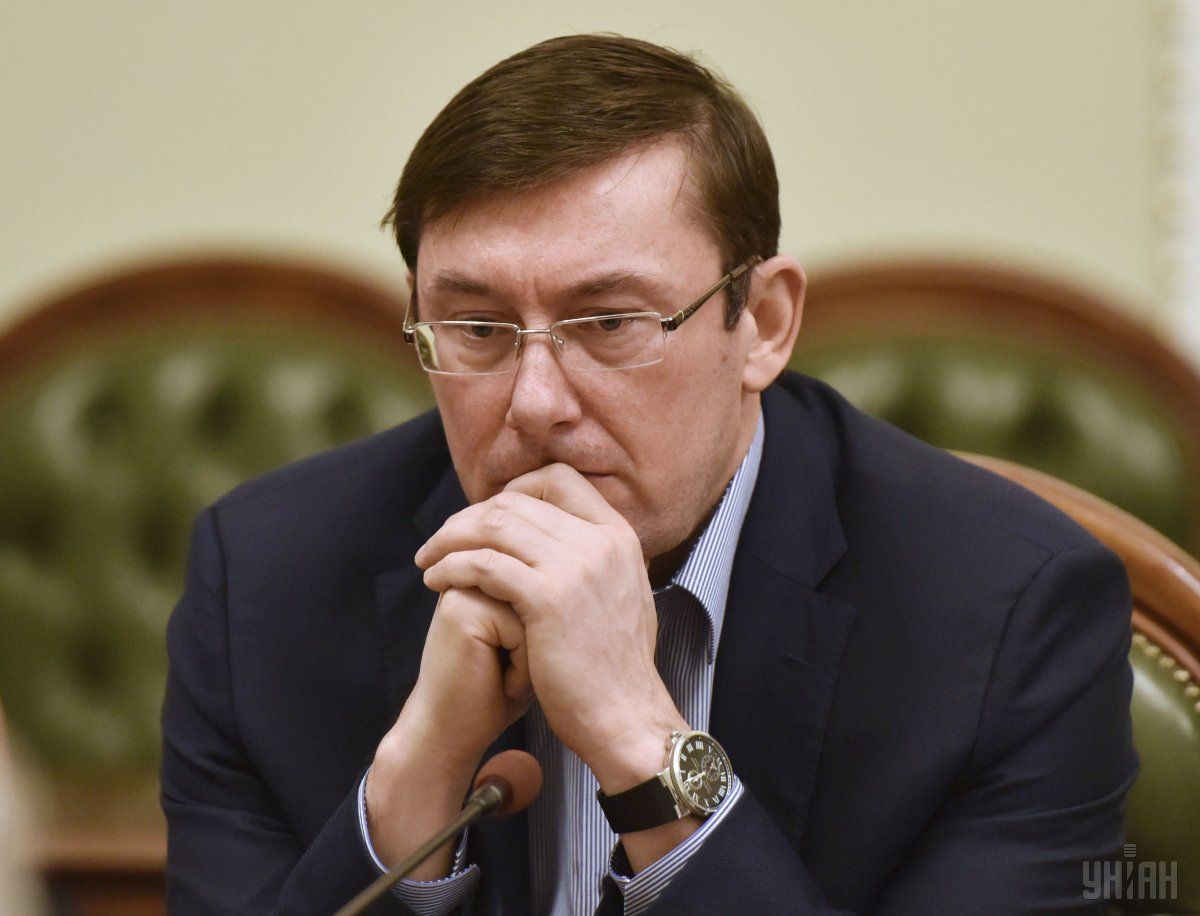
Prosecutor General of post-revolutionary expediency
The fourth since the Revolution of Dignity, the third after the election of Petro Poroshenko Ukrainian President, and the first without legal education and experience in the required field – the new Prosecutor General, Yuriy Lutsenko.
In principle, a prosecutor without legal education and, especially, without deep legal knowledge, is not something new for Ukraine. And it’s not just because one can buy any diploma in any field.
Proletarian “justice”
It is before the revolution of 1917 when the educational level of the majority of the prosecutors across the Russian Empire was traditionally high (which also extended to the territory of Ukraine). Moreover, it was about knowledge gained in the legal field. During the formation of the young Soviet state, the new "leaders" on these things not really paid attention.
Actually, the first prosecutor of the Supreme Court of the USSR (1924-1933), Peter Krasikov could only formally be considered an official with a higher education. After enrolling in the University of St. Petersburg, instead of studying, he was engaged in political activities, promoting Marxism. In his third year in the University (1894), he was arrested and sent to spend three years in Krasnoyarsk, where his parents lived, under police supervision. He worked as a receiver of cargo in a local shipping company, created a Marxist cell, then met with Lenin...
Read alsoU.S. welcomes appointment of new prosecutor general in UkraineBy 1917, he has become a prominent political figure, a representative of the proletariat. After the revolution, he became one of the masterminds behind the Red Terror in Petrograd, got engaged in the fight against counter-revolutionaries and private entrepreneurs (or “speculators” as the Soviet regime labeled them), got a chair of Deputy People's Commissar of Justice, later becoming the first prosecutor of the Supreme Court of the USSR.
Curiously, Peter Krasikov, despite the lack of higher education in the field of law, took part in drafting those "Stalin" constitutions - of the RSFSR in 1918 and of the Soviet Union - in 1924 and 1936, the most “righteous” constitutions the world has ever seen. However, after he died in Zheleznovodsk in 1939, his party comrades did not take his body to Moscow and buried quietly in local cemetery. Besides, during the festivities marking the revolution of 1917, the authorities chose not to mention him in their speeches.
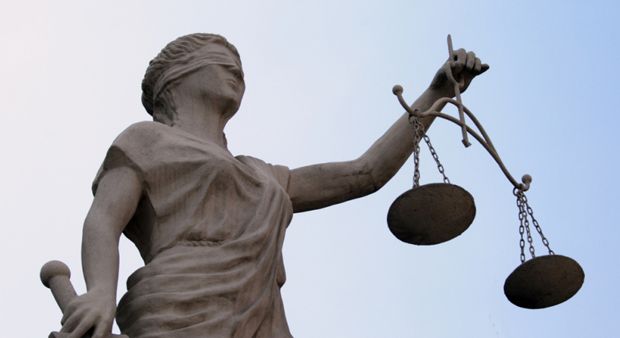
But while Krasikov had to do very little with Ukraine, another Soviet statesman Vasily Polyakov, in addition to being a People's Commissar of Justice, also held the post of a Prosecutor General of Ukraine (1930-1933). However, he didn’t have a relevant education: he became a prosecutor right after the post of head of a state-owned Yuzhmashintrest company, and before that, he had been exclusively engaged in party work and revolutionary activity. In fact, this “revolutionary expediency” was appreciated well above professionalism back in those years. However, things weren’t always perfect in this regard. Despite a great track record in the Central Committee of the Communist Party and a variety of bureaus, the Commissar of Justice and the Prosecutor General of Ukraine, later appointed the People's Commissar of Public Utilities of the Ukrainian Soviet Socialist Republic, Polyakov was arrested and executed in 1937. He was rehabilitated posthumously.
By the way, another Prosecutor General of Soviet Ukraine, Grygoriy Zheleznogorskiy (Eisenberg) had the similar unenviable fate. Since 1916, he has worked as a teacher, but later became interested in revolutionary activities and after becoming a member of the Communist Party in 1919, he started his work in the judiciary. From September 1936 to July 1937 he held the chair of a Prosecutor General of Soviet Ukraine. In 1938, he was arrested, sentenced to death and executed. He was also rehabilitated posthumously.
However, it was not only in Ukraine where people without the necessary knowledge became prosecutors, solely upon the will of fate and in the wake of the revolution. For example, after Fidel Castro came to power in Cuba, repressions have swept across the Island of Freedom. Formally, the prosecutor and the judge were all rolled into one – it was either Raul Castro (Fidel’s brother) with his show trials or Che Guevara with his Appeals Tribunal. According to historical evidence, Che followed a clear principle: "There should be no red tape with the hearings. This is a revolution, the evidence is secondary. We must act out of our beliefs."
Fair criticism
However, today’s appointment of Yuriy Lutsenko a Prosecutor General of Ukraine is unlikely tied to any “revolutionary expediency.” Introducing the new chief to the staff of the Prosecutor General’s Office, President of Ukraine Petro Poroshenko said that, in addition to public demand for justice after the Revolution of Dignity, the appointment of a new prosecutor general was one of the conditions for continued cooperation with the IMF. Meanwhile, all the criticism toward the PGO was just an attempt by someone “on whose tail the PGO was actually stepping, in the state interests” to gain some political capital. These people, according to the president, "have not enough opportunities to launch powerful critical waves."
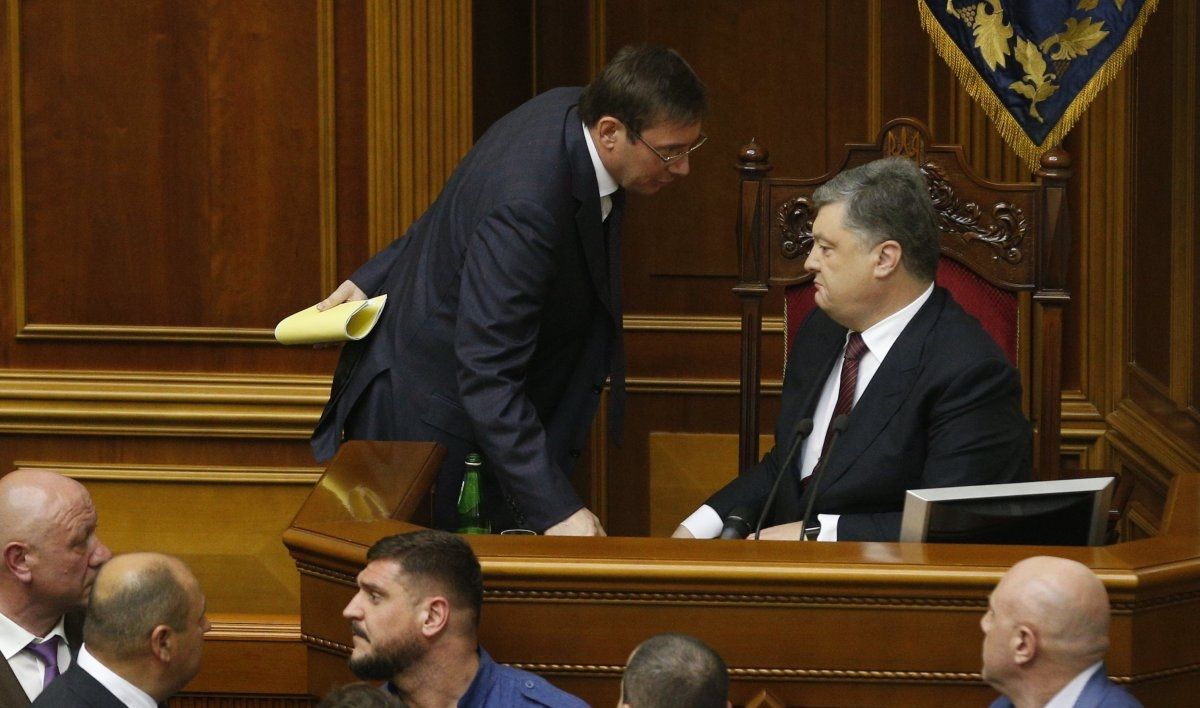
In fairness, it should be noted that it the criticism toward the PGO is not always unfounded. By and large, two years after the Revolution, Ukrainians have not witnessed a single full-blown probe brought to its logical end – a court verdict. Especially substantial was such criticism against Lutsenko’s predecessor, Viktor Shokin. And now the issues which he failed to tackle – incomplete investigation of crimes on the Maidan, the lack of progress on the return to Ukraine of the money siphoned by the Yanukovych team, the lack of punishment for this team, incomplete purification of the prosecutors’ offices of unscrupulous employees – this will all be the legacy of the new prosecutor general.
While appointing Shokin, the president called one of his main advantages the "years of experience," but while appointing Lutsenko, Poroshenko pointed at his “heightened sense of justice." “He went on the scaffold for his beliefs... He has not changed his beliefs in prison... The PGO needs a heavyweight who will not be guided by vengeance, not be guided by the desire to destroy someone. This will be the prosecutor general, who will only be guided by the sense of justice," said Poroshenko, introducing Yuriy Lutsenko to the people's deputies on May 12.
At the same time, the very procedure to adopt the necessary amendments to the law "for Lutsenko," the manner and pace of the signing of the law and Lutsenko’s introduction to the PGO staff, casts a shadow on the possibility of using the word "justice." That’s because, on the one hand, the Ukrainians are told that the rapid changes in particular areas are impossible, as there are many laws that just “can’t be broken.” On the other hand, when it is necessary to appoint a certain person, nothing prevents the Rada from breaking laws (in this case, it was the Verkhovna Rada Regulations)...
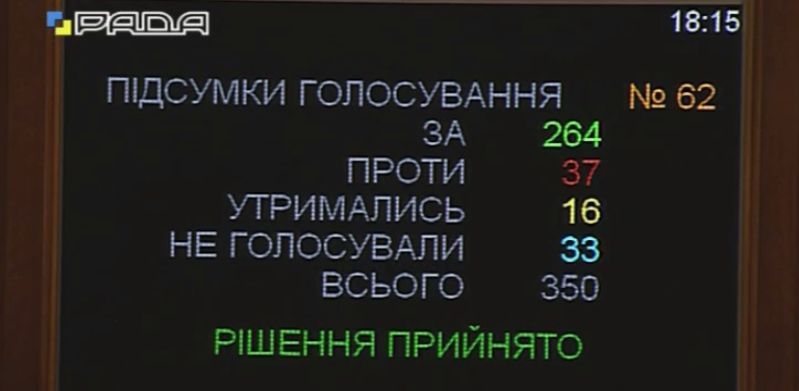
Someone was outraged in Thursday’s appointment with a hasty push-through through the Verkhovna Rada of a draft law to facilitate this appointment for a particular candidate. Someone – with the likelihood a notorious Ihor Kononenko taking up Lutsenko’s previous post of a BPP faction leader. Someone was amused with a miraculous effort of the entire team of the Rada’s official newspaper Holos Ukrainy and the printing house, who promptly (or, more precisely, “in advance”) drafted and printed the "emergency edition" with the text of the aforementioned law, which was a mandatory requirement for the law to enter into force. Some people just did not like the very nominee – Yuriy Lutsenko – remembering about his prison term and lack of legal education.
Yuriy Lutsenko tried to fend off in advance some of the potential attacks. In particular, he said he considered "not quite right" the practice of amending the law on the prosecutor's office, allowing him to take the post of a prosecutor general. With regard to education, he recalled, referring to Yulia Tymoshenko, that "we have been jailed by professionals with a legal education." "Education does not guarantee that the prosecutor's office will work in the interests of law and the public... I received my education during the four years of being an interior minister... I also received my legal education as a suspect, and as a convict…" he said.
Selection criteria
It is worth noting that such statements would hardly add any points to potential candidates for the top prosecutor’s post elsewhere around the world, since a prosecutor general must comply with several criteria. For example, in Georgia, whose the reform of the law enforcement system was recently praised by the Ukrainian officials, a candidate for the prosecutor general’s post must have higher legal education, must be in command of the language of court proceedings and trained in the prosecutor's office.
In neighboring Poland, a prosecutor with the experience of more than 10 years may apply for the position of the prosecutor general. The candidate may also be a sitting judge of a criminal or military chamber of the Supreme Court, who has at least 10 years of judicial seniority in criminal cases.
In the Baltic countries, in particular in Estonia, before a candidate for a top prosecutor’s post, specific educational requirements are put forward. They need to have a master's degree in law. Moreover, the state chief prosecutor should be not only an experienced lawyer but also a well-known one.
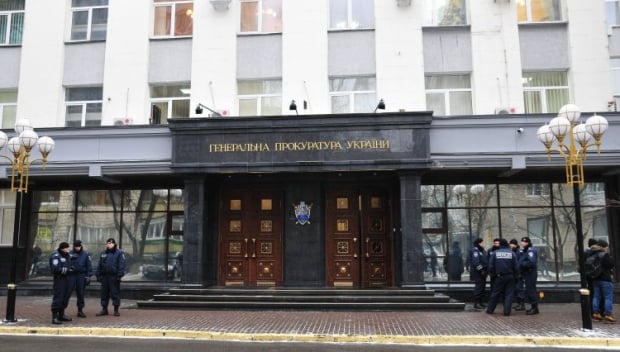
In China, the post of a public prosecutor may not be held by individuals who were earlier convicted, as well as those "who have been dismissed from public office." And in the U.S. or the UK, for all attorneys general (or those holding similar positions) to have a legal higher education and no criminal record is a must.
Even dictatorships - from Latin America to Europe (Nazi Germany or Fascist Italy) - preferred to see in such a position the people who have enough knowledge in the field of law and experience in the legal profession. Of course, not all of them (some of those dictatorships had no top prosecutors as such), but still...
It seems, that there are some other criteria in Ukraine. These are the criteria based on expediency, proximity to the president, adaptability to situations with business scandals and such. It is comforting to hear that Yuriy Lutsenko, after his appointment, said he considered remaining in office for only a "one and a half years' term,” because he realizes that he is not a prosecutor “in his sole or by profession.” “I understand that, without the implementation of a “one law for all” principle, without justice for all, regardless of their political sympathy, or place of residence, or party affiliation and such, the new Ukraine has no chances [to survive]," he said.
According to him, he would do his best to "do the job, set by the public and the president." However, to be effective prosecutor general, understanding of the processes is needed (prosecutors must show quality performance in the courts, rather than visit the various business forums and administer their accounts in social networks), a close-knit team (there is no such team at the moment), and, above all, a political will. But so far, unfortunately, it has only manifested in pushing through legislative motions much needed by the top authorities.
Tatiana Urbanskaya

